Sitting down with Calling Marian on the Portimão beach, during Shesaid.so‘s first ever conference, MEETSSS, was a laidback exchange with a self-made woman, genuinely possessed by what she does. Refreshingly blunt, Calling Marian emanates an inspired DIY no-nonsense, navigating what works for her and putting it out with sincerity.
This young producer, DJ and label boss cruises the weird, sensitive, and edgy through mid to high BPMs of electro, acid, and techno pulses. Omnipresent on current French line-ups, she embodies an emergent Paris scene we love: genre-blending, pushing its electro heritage to the next phase, modern, capable of striking a dance-floor with taste and vigor, and more open to fostering inclusive rave spaces.
Originally from Lyon, this musicology student left the books behind to answer the call of Paris’ sirens, carving out her own sonic reality. Her reach is versatile – as part of SOLIDES, on audio-visual composition duo; resident of Lyon queer nights La Chatte; member of Parisian collective Conspirations; recent label boss with cvnt records; member of the Sale Affaire techno merger.
Marianne delivered two sets at shesaid.so’s first conference, a poolside afternoon live jam and a late-night techno fix.
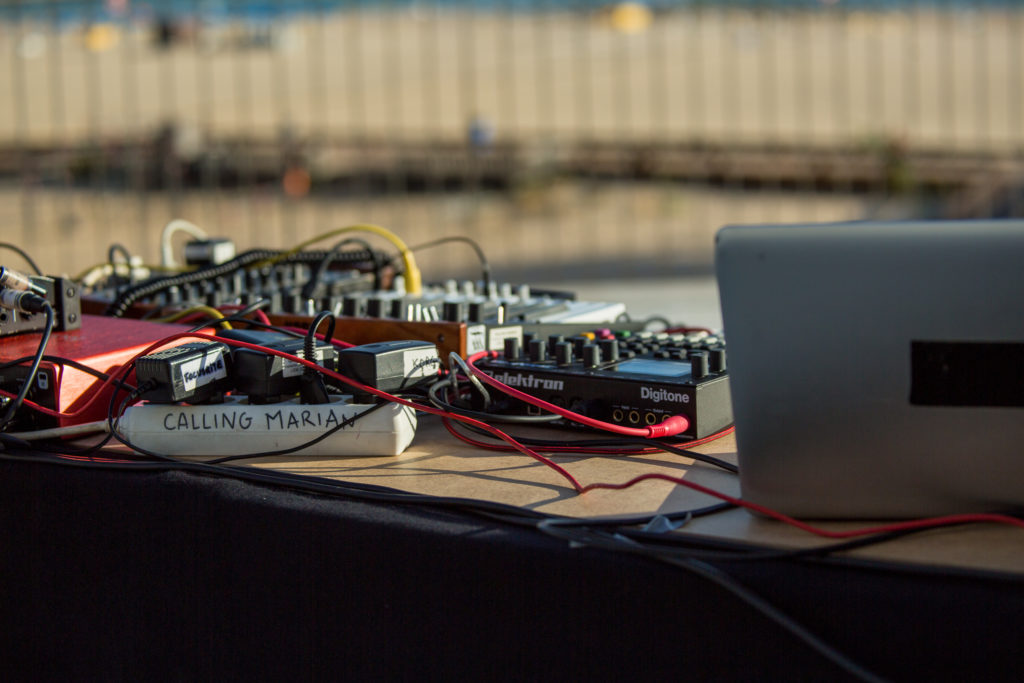
HS: We’re here at MEETSSS, wrapping up two amazing days of panels, wellness activities and shows highlighting female perspectives in the music industry. Have you been to any panels so far, do you have any takeaways from this event that you would want to bring back home with you?
CM: It was really amazing and unique to be here. It’s actually the first time I attend a conference as a professional in the music industry. Still, I was here as an artist and not as a professional, like a producer or booker. And it was really interesting to be in the shoes of these people who act in the dark and shadow people. The panels I’ve been to have been really interesting – it was actually also my holidays because I didn’t get much this year, so it was nice to be in Portugal for this. I met so many amazing women here – mostly French but not only; I met Abby who’s American, Delhia de France who just played, who’s super nice. It was a great opportunity to meet people, to connect and do some genuine networking.
HS: Yeah, the tone was very honest and genuine…
CM: Yeah, and chill as hell. Everybody’s super surprised to not have to act like you usually do as a woman in the industry, we were just together and it was so restful and relaxing.
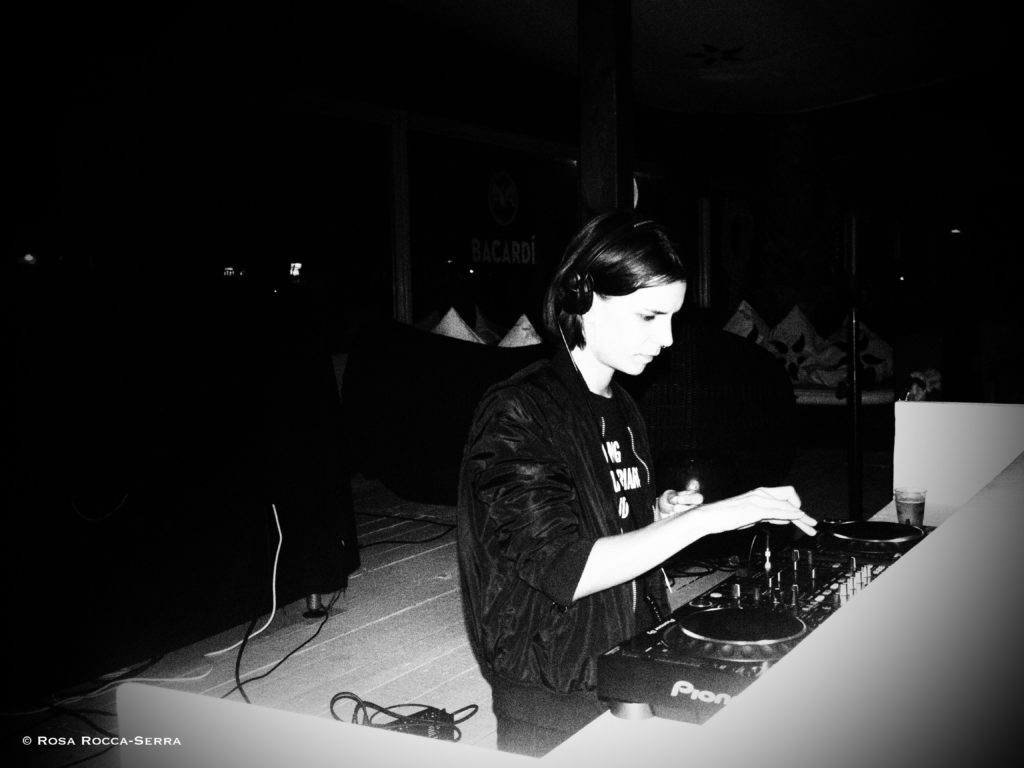
HS: Your ‘about me’ section just reads “structured sound”, and I really liked that… because you have this background in instruments, classical music, musicology, all these different types of musical structure. And now you’re operating in a genre that’s more repetitive, with more confined creativity. How has electronic music changed your own musical structure?
CM: I discovered electronic music as most people do, in clubs, as a customer. I was composing music before but it was more folky, singing or experimental and I was never satisfied with it. I was looking very hard to sound original. You have this complex of being the artist thats going to change music, revolutionize it – that’s stupid to have when you’re so young, and I think it’s stupid to have anyway. But when I discovered the magic of repetitive music, the trance that it can create, with all the drums and how it gets you in an almost spiritual way… there’s something magical happening there. That’s what techno is about, the magic of drum repetition with a big kick on every beat. And it gets you going – anything you can put inside the structure will work and will be crazier than original. It can seem very limited at first, but actually, it’s so liberating. I just have this rhythm structure that is the same, and so much that can be put into it – that’s magical. The fact that I’ve been through several genres and studied very complicated old fashioned structures made me realize you don’t have to get complicated, you can go for sincere and simple. The simpler the music, the more efficient it gets.
HS: The more people you can reach…
CM: Yeah, and I don’t intend to be mainstream but I do think music should be open to everyone.
HS: What are some recent projects coming up for you?
CM: I released an EP in April, a 5 song EP. I’ve got some remixes and singles that will be released on various compilations. I intend not to release any music soon because I want to get to write an album that will be narrative and coherent. A whole piece, not just songs.
HS: You’ve worked on visual projects too, is there going to be a visual part to this album?
CM: Yes! I don’t know yet if it will be video or more… I would love for it to be more scenographic than that, like a light show. It’s yet to be made. I want this to be an album, a new live, a performance, everything. I’m going to focus on this this year, so there will be no new music for a while.. but it’ll be really great when it’s over.
HS: You studied musicology – what about music history inspires you, what spoke to you and what didn’t?
CM: All the Middle Ages stuff didn’t touch me at all, and it was the main part, which was a bit annoying. What was really interesting was everything about the 20th century, how we started to record, how we started to edit magnetic stuff, use computers, how synths were introduced… All the geeky stuff.
HS: And where women played a huge role!
M: Exactly, yeah. You had Wendy Carlos, Eliane Radigue… They were really important and a bit erased from history. So I think it’s nice they’re getting acknowledgment right now, you have this big come-back of modular synths and this scientific approach of electronic music and they were a big part of it really. And now, with all the great steps women are taking in music, we’re seeing like a second age of this. Nothing really before the 20th century was a game changer with what I studied. I guess I had some influence with technical writing and harmony, and how to build music in a classical way. Of course it counts, but it didn’t really inspire anything
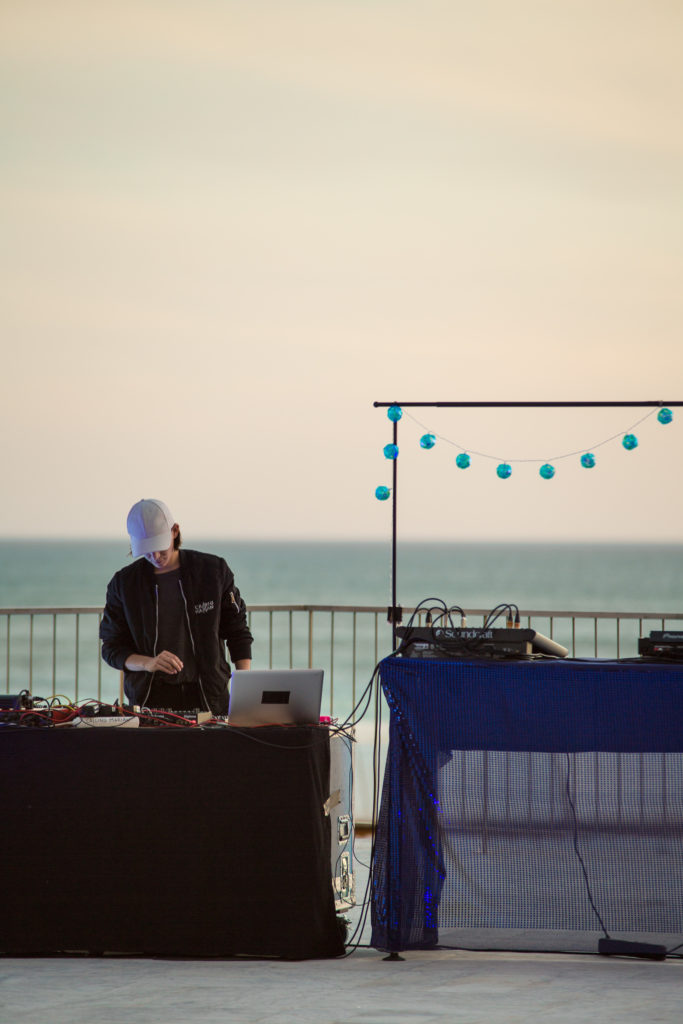
HS: Have you thought of bringing that musical education and history into your projects somehow?
CM: I kind of do already, the writing of harmony comes from music writing… so it was useful, even though I’m bashing it right now. It was important to have this background. This year, I’m going to work with students around 11-12, and I’m going to introduce them to electronic music, which they don’t really have contact with. Everybody listens to rap right now. So I’m going to teach them! And assist the teacher, give insight – why does this make you dance? Why doesn’t this? It’s really nice – everything that I got to take from musicology, I can give it back in some way. So I’m not using the scoring and everything to compose, but it still helps that I studied this field.
HS: Sounds like a great program. It’s cool to see France recognize electronic music as part of its heritage, and more and more as an art form. Did you get a chance to see the Electro! Exhibit at the Philharmonie de Paris?
CM: Yes of course! It was nice, really really nice. It’s so important that we have that because Berlin does it very well, electronic music is a really genuine and legitimate part of the Berliner culture. In Paris we had this great scene in the 90s, and even now, but it still feels like its something punk, outcast and weird. The guys who started it are in their 50s now, it shouldn’t be a new thing anymore, it should be part of culture and history. Step after step, it’s getting there. But it’s still complicated. I don’t know if you saw, but the clubs are closing.
HS: Losing Concrete was a hit.
CM: The prefecture is really against these parties.
HS: It’s ironic, we have this large-scale pride of the French Touch, Daft Punk Laurent Garnier etc are now considered national heritage. But the spaces where those types of artists can grow right now, are being shut off.
M: Exactly. And then there’s the drug issue – it’s taken care in the worst way possible, only through repression. Everything is forbidden and punished, there’s no education. It’s used as an argument to close the clubs.
HS: We have a long way to go in harm reduction… Bringing it back to music, do you play any instruments?
CM: I used to play the guitar quite well, I’m a beginner on keyboards and I’m not really a good instrumentalist actually. I’m more of a composer, I like to tweak buttons and experiment. I leave it on the side, I’m not playing guitar anymore – I’m not going to become a genius at it.
HS: So it’s never something you thought about bringing with you on stage?
M: Maybe, for some. I bought an electric guitar last year and I haven’t had the chance to use it yet…but maybe. For now, I’m really going for techno and acid, I don’t really need the instruments.
HS: It’ll call when it calls.
M: Yeah, it can come back.
HS: So you launched a label recently, and by doing that you’re taking a bunch of new responsibilities and tasks on. I’m wondering how you balance everything with the creation process.
CM: It doesn’t really change the creation process, it just takes more time. But for now I’m using this label to release my own music. It’s more something about the kind of artist that I am – now I’m an artist but also a label boss, which doesn’t imply that much more responsibility as I’m only releasing my own music for now, on various albums and stuff. It’s interesting, time consuming, and it’s nice to be your own boss. I dont have to rely on labels anymore, or give away my royalties. It’s the way to be independent.
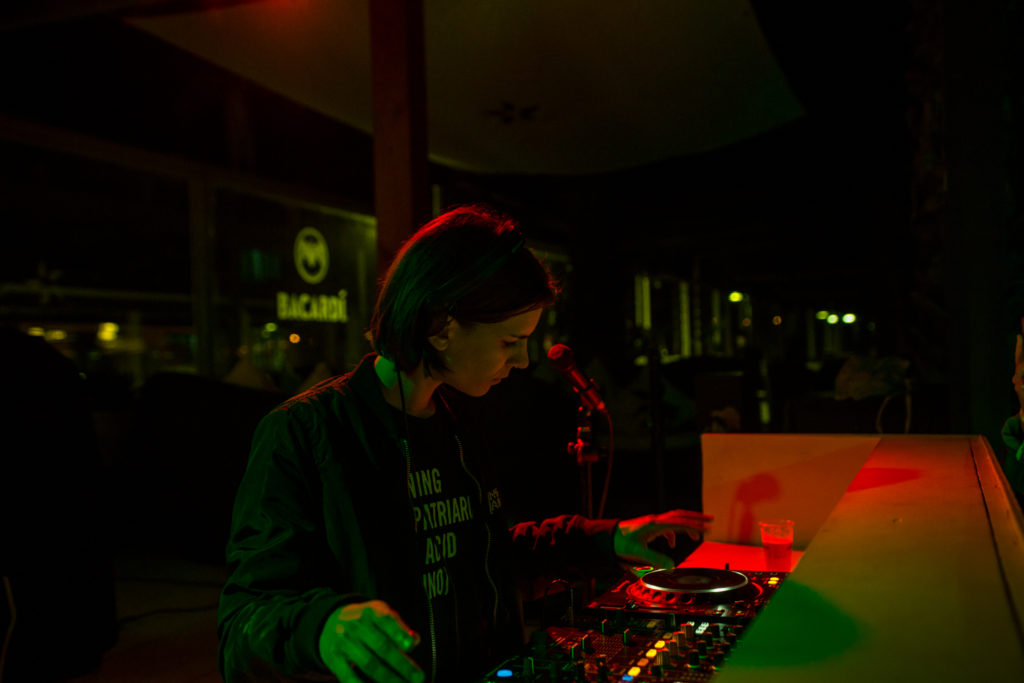
HS: What’s your preferred setting to play in? Afterhours, daytime….
CM: Actually, I have the specificity, I think, to play in really different kinds of places. I started as a DJ, so you learn to adapt. When I wrote my live set, I didn’t want to be forced to play in just one context. so I wrote music that can be played by the pool at shesaidso, or in a club at 2am. The beginning’s BPM is low, and it rises during the whole set, and finishes at 140, quite fast. Thats what I like about it, it’s an hour story that can be played at 7 or 10 or 11. I like to see it as a concept as well. It’s techno music. Theres something about this that’s not just pure club energy – I like to think that I put a lot of myself in it.
HS: On that note – emotion really runs through all of your tracks, in different shapes, no matter the mood. What are you sensitive to, that feeds into that?
M: Yeah. Even if I wanted to be really dark and industrial I couldn’t really, because I always need to rely on melody and harmony. I think that’s what people like about my music – it gets you going, its dancey, you can listen it doing sports or whatever. But I cant get rid of the emotion. I dont know really… Every time I try to recover what I was thinking or feeling when I composed a song, I don’t know what happened it’s just thrusting out of me, my hand is writing. It’s pure music, I don’t really know where it comes from.
HS: What are your non-musical inspirations?
CM: I love movies actually… I like TV, geeky stuff, video games, computers.
HS: Any movie recommendations?
CM: Recently I’ve seen a long movie from 1969, it’s called ‘Le Cerveau d’Acier’. It’s about artificial intelligence and takes place during the Cold War. The US creates this robot, to decide whether it’s relevant to attack Russia or not. But what they don’t know is Russia created the exact same robot and the robots start communicating. And the army is just scared watching these robots communicate, deciding if there’s going to be a war or not. It’s really a question that’s being raised right now, and this was in ’69! Nothing’s changed, it’s the same question: what if the robots are smarter than us?
HS: To end off, any labels or artists that you recommend for us?
CM: Yes! I think there’s something really great happening in Paris right now. Lots of producers making interesting stuff, there’s a big revival of the 90s, lots of Eurodance, acid-trance… The club scene is really rich. The scene is really young, everyone’s 20, 25 and they’re all over the clubs. There’s my friends at Kindergarten, my own collective called CONSPIRATION… We’re all producers also.
__________________________________________________________________________________________________
Follow Calling Marian
Facebook – CVNT Records Bandcamp – Soundcloud
Follow Shesaid.so
Cover photo: Rosa Rocca-Serra, another inspiring lady met at MEETSSS. She recently released her first single, Breakfast After Midnight
Article: Lola Baraldi



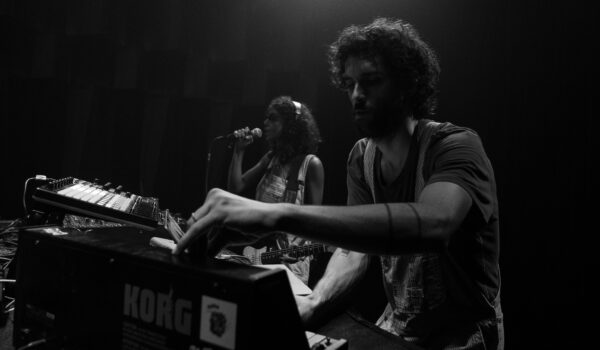
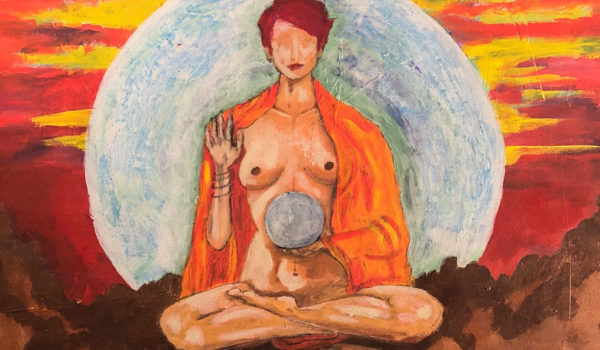
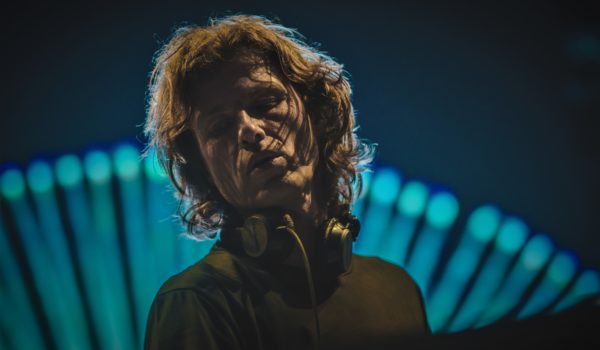
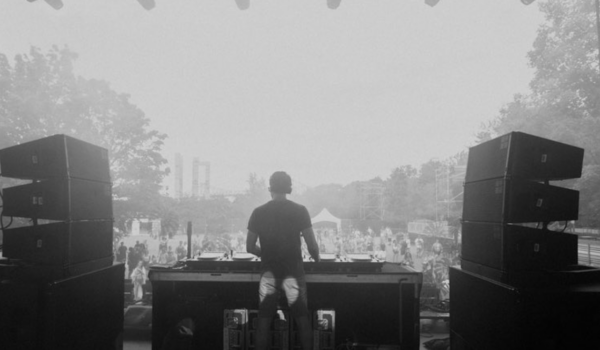
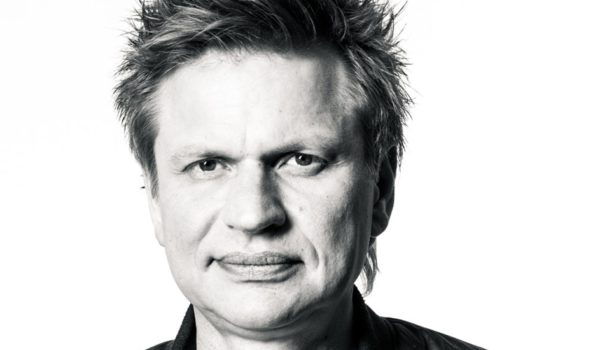
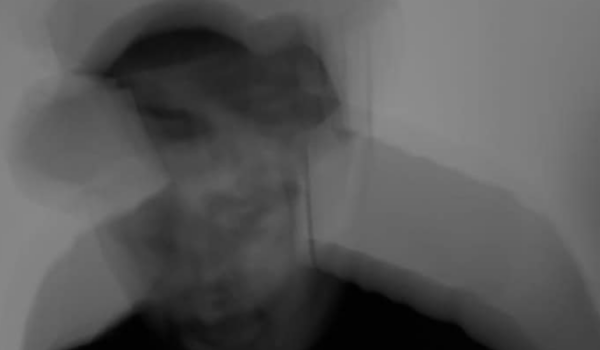
Comments